You ever catch yourself digging into every feeling, like it’s a puzzle you gotta solve right now, only to end up more tired than when you started? Like, “Why did that comment bug me? What does it say about my trauma?” And before you know it, your “healing” time’s turned into a full-time gig, leaving you drained and wondering if you’ll ever just be okay. If this sounds like your life lately, especially if you’re in your 20s or 30s juggling therapy, self-help books, and all the inner work, you’re not alone.

This article explores how nonstop emotional processing can lead to a subtle burnout that’s hard to spot, why it happens, and how to balance growth with actually living your life. We’ll cover the signs, the toll it takes on your body and mind, and practical ways to step back without feeling like you’re slacking on your healing. For more on handling that nighttime brain chatter that amps up emotional spirals, check out our post on Why Can’t I Turn My Brain Off? Dealing with Overthinking at Night. And Psychology Today has a solid piece on why emotional work can lead to fatigue. Oh, and we’ve got a quick self-assessment quiz coming up to help you see if your inner work’s tipping into burnout take it to get a clearer picture. Ready to give your brain a breather?
Why Emotional Work Can Become Exhausting
Emotional processing is all about digging into your feelings, figuring out why you react the way you do, and working through old stuff to feel better. It’s great in theory like, who doesn’t wanna heal their trauma and live a happier life? But when it turns into a nonstop thing, it can backfire big time. Your brain’s not meant to be in “analyze mode” 24/7. It’s like running a marathon without breaks you end up collapsing.

One reason this happens is unrelenting self-awareness. You’re always monitoring your emotions, like “Why did that trigger me? What does it mean for my attachment style?” It’s helpful at first, but over time, it creates this constant self-analysis loop that never shuts off. Verywell Mind says this hypervigilance can lead to emotional exhaustion, where you’re so focused on fixing yourself that you forget to just live.
Therapy culture plays a role too. Don’t get me wrong therapy’s awesome, but with all the podcasts, books, and Instagram reels about “doing the work,” it can feel like if you’re not processing every feeling, you’re slacking. Perfectionism sneaks in, making you think healing’s a checklist you gotta complete perfectly. And let’s be honest, for those of us in our 20s and 30s, life’s already full of pressure career, relationships, figuring out who you are. Adding “constant emotional work” to the mix? It’s a recipe for burnout.
I remember when I first got into therapy. It was great I was unpacking childhood stuff, feeling empowered. But then it became my everything. Every conversation turned into “What does this say about me?” Every bad day was a “trigger to process.” I was so busy analyzing that I forgot to enjoy the simple things, like a walk in the park or a laugh with friends. It wasn’t healing anymore it was work. 😔
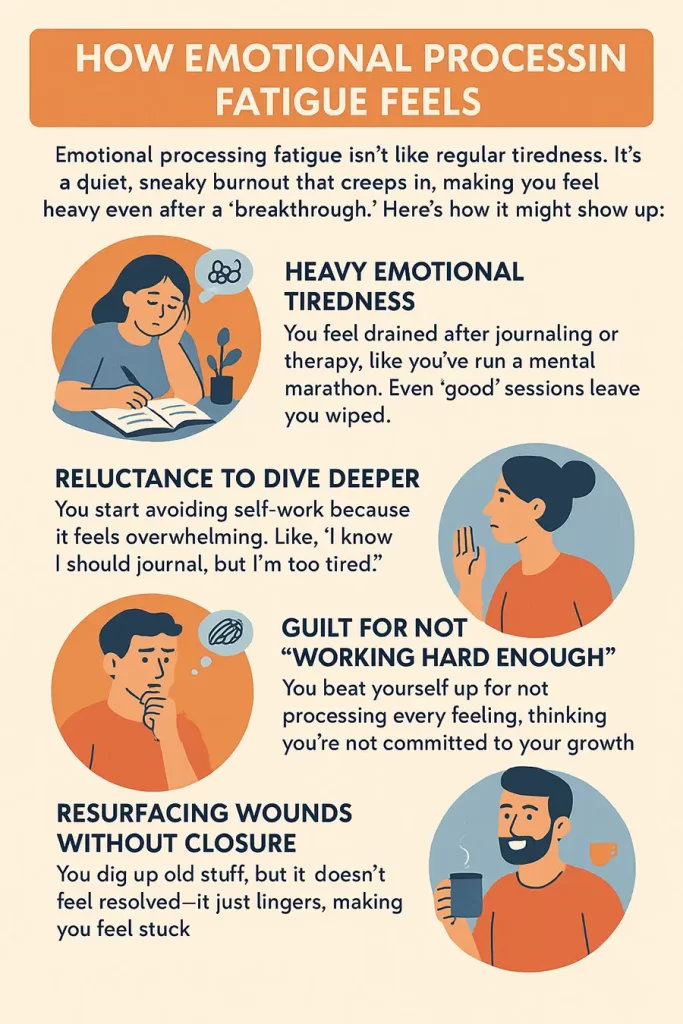
How Emotional Processing Fatigue Feels
Emotional processing fatigue isn’t like regular tiredness. It’s a quiet, sneaky burnout that creeps in, making you feel heavy even after a “breakthrough.” Here’s how it might show up:
- Heavy Emotional Tiredness: You feel drained after journaling or therapy, like you’ve run a mental marathon. Even “good” sessions leave you wiped.
- Reluctance to Dive Deeper: You start avoiding self-work because it feels overwhelming. Like, “I know I should journal, but I’m too tired.”
- Guilt for Not “Working Hard Enough”: You beat yourself up for not processing every feeling, thinking you’re not committed to your growth.
- Resurfacing Wounds Without Closure: You dig up old stuff, but it doesn’t feel resolved it just lingers, making you feel stuck.
- Loss of Joy in Everyday Life: You’re so focused on “fixing” yourself that you miss the fun parts, like a spontaneous coffee with a friend.
For me, it felt like I was always “on.” A casual chat with a coworker would turn into, “Why did that bother me? What does it say about my boundaries?” By the end of the day, I was mentally fried, with no space left for just being. It wasn’t until I realized this “work” was burning me out that I started to shift.

Common Signs of Quiet Burnout
If you’re wondering if your emotional work’s tipping into fatigue, here are some signs to watch for:
- Constant Monitoring: You’re always analyzing your feelings, like “Why did I react that way?” even in low-stakes moments.
- Fear of Missing a “Breakthrough”: You worry if you’re not processing daily, you’re falling behind in your healing.
- Difficulty Enjoying Lightness: Play or fun feels like a waste when there’s “work” to do.
- Attachment to “Doing the Work”: Your identity’s tied to being the one who’s always growing, which leaves no room for rest.
- Emotional Numbness: You’re so busy processing that you start feeling numb to your own emotions.
I noticed this when I skipped a friend’s birthday party because I felt guilty not using that time to “process” a tough week. It was like my brain thought fun was optional, but inner work was mandatory. That’s when I knew something was off

Where This Pattern Comes From
This nonstop processing often starts from good intentions. Maybe you had a big breakthrough in therapy and wanna keep the momentum. Or you’re perfectionist, thinking healing’s a box to check. But it can stem from deeper stuff:
- Trauma or Anxiety: If you’ve dealt with trauma, processing can feel like safety always digging to “fix” yourself. But it turns into hypervigilance, where you’re always on alert for emotional “threats.”
- Cultural Pressure: Social media’s full of “do the work” messages, making it feel like if you’re not analyzing every feeling, you’re not growing.
- Perfectionism: You think healing’s linear, so any pause feels like failure.
- Fear of Stagnation: After a tough period, you might fear slipping back, so you overdo the work to “stay ahead.”
I grew up in a family where emotions were brushed off, so when I started therapy, I dove in headfirst. It was like making up for lost time, but I didn’t know when to stop. It wasn’t until I realized my “work” was becoming my identity that I could step back.
The Nervous System Cost of Constant Processing
Constant emotional work can wear on your nervous system, keeping you in a state of high alert. Here’s how it plays out:
- Prolonged Stress Response: Your body’s fight-or-flight mode doesn’t turn off, leading to cortisol overload and fatigue.
- Adrenal Fatigue: All that analyzing can drain your energy reserves, making you feel wired but tired.
- Digestive and Sleep Issues: Stress messes with your gut and sleep, like insomnia or tummy troubles.
- Emotional Numbness: You’re so busy dissecting feelings that you stop feeling them fully.
- Resentment Toward Healing: You start resenting the process, like “Why do I have to work so hard?”
Bradley University says chronic stress from emotional labor can increase heart disease risk by 67%. It’s not just mental it’s physical too. I felt this when my constant journaling left me with headaches and no energy for fun. My body was like, “Enough already!”

How to Gently Step Out of Emotional Burnout
Burnout from emotional work isn’t forever you can step back and find balance. Here are five ways to do it, with real examples to show how:
1. Validate the Exhaustion
First, admit you’re tired. Say, “My body’s worked hard to heal it’s okay to pause.” This lets you see the fatigue as normal, not failure.
I did this in therapy one day. I said, “I’m exhausted from all this work,” and my therapist was like, “That’s valid let’s rest.” It was like permission to breathe.
2. Practice Emotional Rest, Not Avoidance
Rest doesn’t mean ignoring your feelings it means allowing them without dissecting every one. Let some emotions just be.
I started this by taking “no analysis” days, where I’d feel something and think, “Okay, noted,” without journaling it. It was freeing.

3. Reclaim Play, Pleasure & Lightness
Healing isn’t all work make room for fun. Schedule non-therapeutic activities, like dancing or watching a silly movie.
This hit home for me when I skipped journaling to go for a hike. I laughed with friends, felt the sun, and realized healing includes joy too.
4. Release Perfectionism in Healing
Let go of “I should be past this by now.” Healing’s not a race it’s a journey with rests. Say, “Growth happens in pauses too.”
I used to feel guilty for “lazy” days, but now I see them as integration time. It’s like letting the soil rest before planting again.
5. Limit Consuming Overwhelming Self-Help Content
Self-help’s great, but too much can fuel obsession. Unfollow accounts that make you feel like you’re not doing enough.
I took a break from therapy podcasts and felt lighter. It’s like giving your brain a vacation from “work.”
Quiet Burnout in the LGBTQ+ Community
For folks in the LGBTQ+ community, quiet burnout from emotional processing can be even tougher. Navigating identity struggles, discrimination, or family rejection means you’re often processing heavy stuff just to survive. A queer friend of mine said they’d spend hours analyzing their feelings about coming out, but it left them exhausted and disconnected from joy.

Finding affirming spaces, like LGBTQ+ therapy groups or online communities, can help. My friend joined one and started sharing their burnout, realizing they’re not alone. If you’re part of the community, seek out places where you can process at your own pace without pressure it’s like a safe harbor for your heart. 😊
The Science Behind Emotional Processing Fatigue
Emotional processing fatigue is real it’s your brain and body saying, “We need a break!” When you’re constantly analyzing feelings, your prefrontal cortex (the thinking part) works overtime, using up glucose (brain fuel). This leads to mental fog and exhaustion. Psychology Today says emotional labor activates the same stress response as physical work, releasing cortisol that keeps you wired.
Your nervous system’s involved too. Constant hypervigilance keeps you in fight-or-flight, preventing rest. A 2017 study in Frontiers in Psychology found that emotional suppression increases anxiety and reduces life satisfaction.

Hormones play a role adrenaline from stress can make you feel jittery, while low serotonin from burnout leads to numbness. Neuroscience shows overprocessing activates the amygdala (fear center), making it hard to relax. But mindfulness can help, reducing amygdala activity by 25% per a 2015 study in Psychiatry Research.
Here’s the data:
| Impact | Statistic | Source |
|---|---|---|
| Anxiety Increase | Emotional suppression linked to higher anxiety | Frontiers in Psychology |
| Amygdala Activity | 25% reduction with mindfulness | Psychiatry Research |
| Heart Disease Risk | 67% increase with chronic stress | Bradley University |
Your body’s not built for nonstop emotional work it’s built for balance
Other articles that will definitely help you
How to Start Softening Emotional Processing Fatigue
- Validate Your Tiredness: Say, “It’s okay to pause I’ve done enough work for now.”
- Allow Feelings Without Analysis: Let some emotions just pass, like clouds in the sky.
- Schedule Fun Time: Spend 30 minutes a day on something playful, like dancing or gaming.
- Ditch Perfectionism: Tell yourself, “Healing’s not a checklist it’s a journey.”
- Limit Self-Help Intake: Unfollow accounts that make you feel like you’re not doing enough.
- Ground Your Body: Do breathwork: inhale 4, hold 4, exhale 4.
- Celebrate Rest: Note how rest makes you feel refreshed, not lazy.

Conclusion
Constant emotional processing can turn healing into a quiet burnout, leaving you drained and disconnected from joy. But you don’t have to live like that. By acknowledging your exhaustion, practicing rest, and reclaiming play, you can balance growth with living. You’re not a project to fix you’re a human to experience.
Healing isn’t about nonstop work; it’s about integrating what you’ve learned into a full life. So, tonight, try one thing. Put down the journal and watch a silly movie. Let yourself just be. You’ve earned it. 😊

Citations:
- Psychology Today: Emotional labor involves regulating or masking your feelings to meet professional or social expectations, which, when sustained, can lead to emotional exhaustion, burnout, and dissatisfaction.
- Verywell Mind: Burnout often triggered by prolonged stress manifests as deep physical, mental, and emotional fatigue. It may lead to feelings of dread, lack of motivation, poor sleep, and cognitive fog.
- Frontiers in Psychology: Research highlights how emotional suppression holding in feelings can disrupt emotional regulation and contribute to psychosomatic symptoms in young adults
- Bradley University: Mental health challenges, such as depression or stress, are strongly associated with physical health outcomes like increased risk for heart disease, cancer, and reduced overall longevity
Don’t miss related articles
- Why Can’t I Turn My Brain Off? Dealing with Overthinking at Night
- The Fear of Setting Boundaries
- The Subtle Exhaustion of Always Being ‘The Strong One’
- Self-Care in Relationships

Mental Wellness Test
Where Does Your Mind Need the Most Support?
Discover your emotional health in under 4 minutes.
Find out if what you’re feeling is:
burnout, anxiety,trauma
or just too many open tabs in your brain.
No pressure – Just clarity
✨ Last updated on 15.08.2025
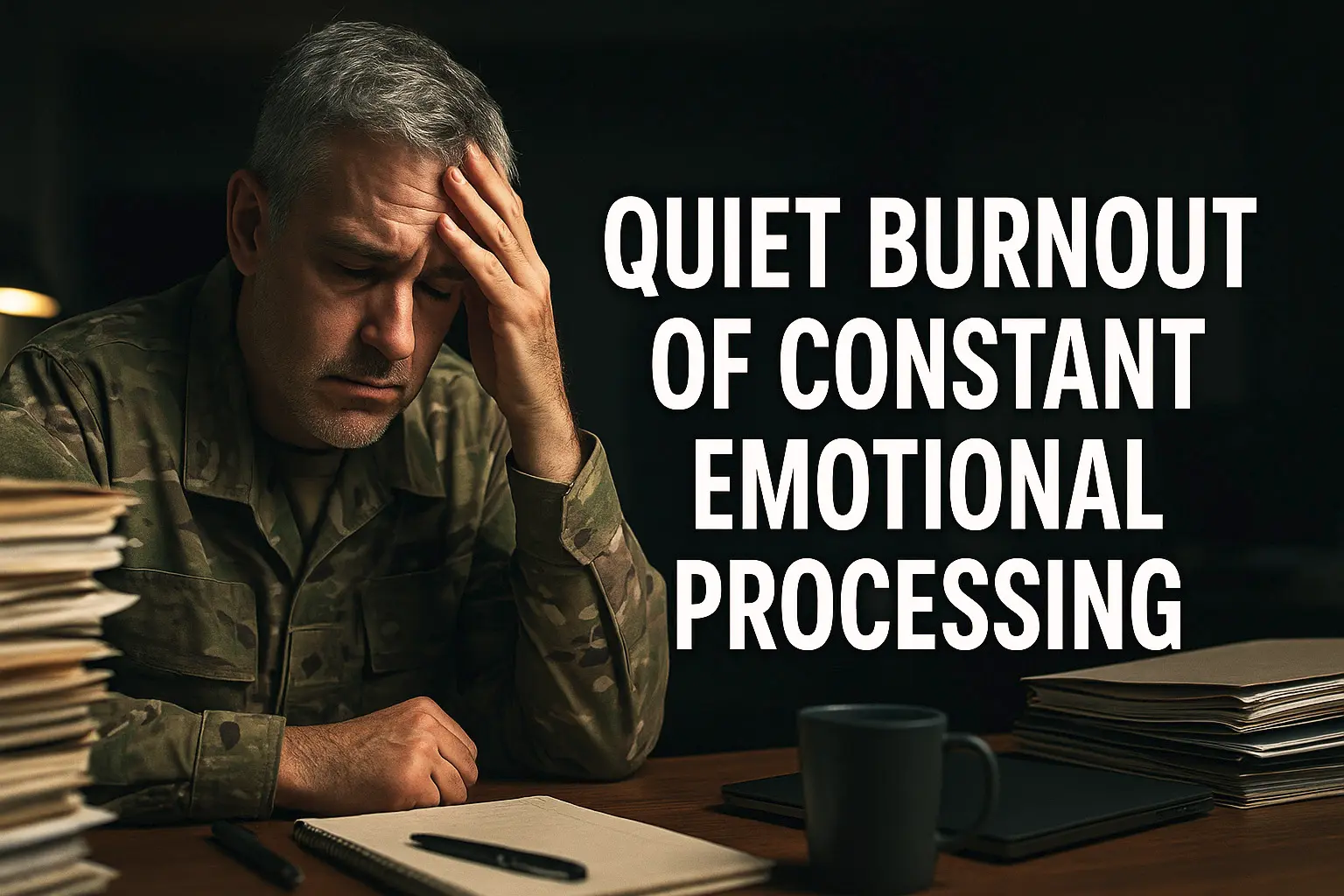

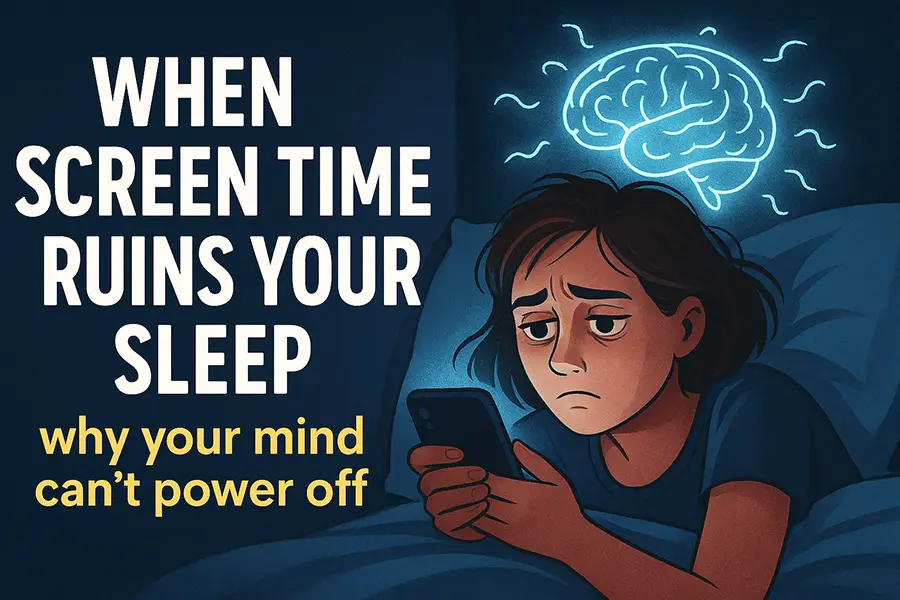


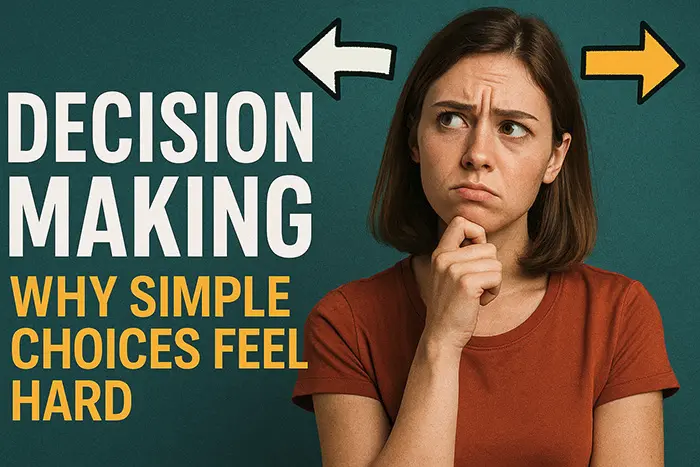


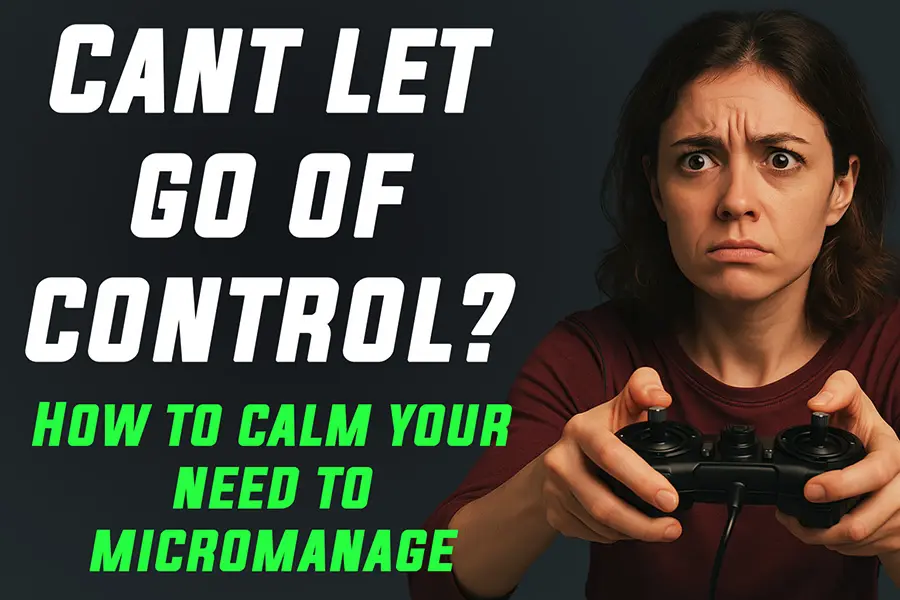














Leave a Reply